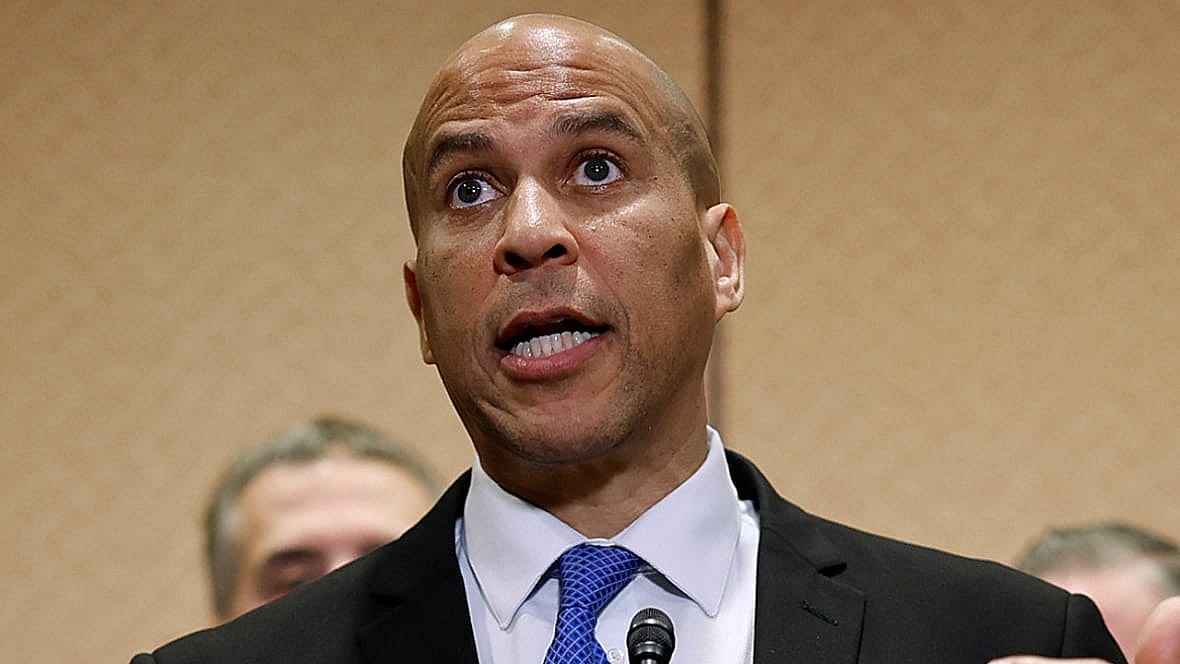New Jersey Sen. Cory Booker has introduced a package of bills that would end cruel labor practices in U.S. prisons and tackle fair pay and workplace discrimination on behalf of incarcerated individuals.
In a statement obtained by theGrio, Booker proposed that the four bills — the Fair Wages for Incarcerated Workers Act of 2023, Correctional Facilities Occupational Safety and Health Act, Ensuring Work Opportunities in Correctional Facilities Act and Combating Workplace Discrimination in Correctional Facilities Act — would address “inhumane and unacceptable” prison labor conditions in America’s correctional facilities.
The Democratic senator believes these bills would end unfair and abusive labor policies.

“The Thirteenth Amendment abolished slavery ‘except as a punishment for crime,’ but this language has enabled and expanded the exploitation of incarcerated people in our country’s prisons,” he said.
Booker’s prison reform legislation would ensure that incarcerated individuals are deemed employees and would require correctional facilities to routinely report workplace safety and labor conditions to the Occupational Health and Safety Administration.
Beth Schwartzapfel, a reporter for the Marshall Project, told theGrio that being an incarcerated individual is a “dehumanizing experience” and that Booker’s legislation would be “life-changing.”
“People don’t have access to basic human needs,” she contended. “People don’t have access to their loved ones in any regular way. People don’t have access to their humanity in a way. The culture of prison is such a machismo sort of posturing, violent place that is all about survival.”
Other parts of Booker’s effort would ensure that incarcerated individuals are paid a livable wage and would provide resources for inmates to seek employment and educational opportunities while behind bars. He said that more than half of incarcerated people work while carrying out their sentences.
“Because fair labor standards are virtually nonexistent in U.S. prisons, incarcerated people are often compelled to work in abusive and unsafe conditions,” said Booker. “They work for little to no pay, on average making between 13 and 52 cents per hour in most jobs.”
Schwartzapfel told theGrio that if incarcerated individuals are paid a livable wage, it could prevent recidivism and would benefit the nation’s economy.
“If you have enough money in hand that you can put a down payment on an apartment or that you can buy a car so that you can actually drive to job interviews or that you can actually take a job that you can get to without public transportation … it just creates a better circumstance for people to do better,” she said.
“When people are desperate, that’s when laws get broken,” Schwartzapfel said, “[but] when you release people from prison with enough money like a cushion to settle back into society, you eliminate the incentive to continue to break the law.”
Booker’s proposals also aim to protect incarcerated individuals’ civil rights and prevent them from falling victim to discriminatory practices. For instance, the senator advocated for having the phrase “refusing to work” removed from the Federal Bureau of Prisons inmate behaviors list, which is often used to justify why a prisoner should face harsh consequences.
“If they refuse to work,” he said, “they face retaliation by correctional officers and have limited avenues under federal law to fight for their civil rights.”
The senator’s package of bills is backed by several organizations, including the American Civil Liberties Union, the Leadership Conference on Civil and Human Rights, the Brennan Center for Justice and the National Employment Law Project.
TheGrio is FREE on your TV via Apple TV, Amazon Fire, Roku and Android TV. Also, please download theGrio mobile apps today!

